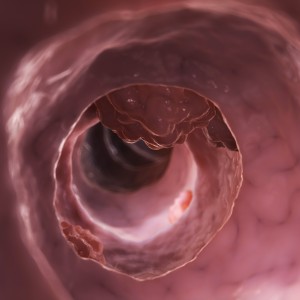 Researchers at the Institute for Research in Biomedicine (IRB) Barcelona, Spain have recently published new research in the journal Nature Genetics where they highlight the possibility of classifying colon tumors into good or bad prognosis based on the tissues surrounding cancer cells. The study is entitled “Stromal gene expression defines poor-prognosis subtypes in colorectal cancer.”
Researchers at the Institute for Research in Biomedicine (IRB) Barcelona, Spain have recently published new research in the journal Nature Genetics where they highlight the possibility of classifying colon tumors into good or bad prognosis based on the tissues surrounding cancer cells. The study is entitled “Stromal gene expression defines poor-prognosis subtypes in colorectal cancer.”
Colorectal cancers have been molecularly classified based on global gene expression profiles according to their resistance to therapy and prognosis. Several recent molecular classifications have been proposed to recognize colorectal cancer patients at risk of relapse. It is estimated that around 40 to 50% of all colorectal patients experience a relapse in the form of metastasis, usually in the liver and lungs.
IRB researchers are now developing a simplified and improved molecular method to allow the identification of patients at risk of relapse after surgery for cancer removal by specifically analyzing the expression of 4 to 6 genes in the tissue surrounding the tumor, also called stroma or tumor microenvironment.
“We have re-evaluated the classifications under our perspective and confirmed that colon cancer relapse occurs in patients in which tumour cells have the capacity to disrupt the tissue surrounding the tumour,” explained the study’s senior author and leader of the Colorectal Cancer Laboratory at IRB Barcelona, Dr. Eduard Batlle in a news release. The team has analyzed the genetic profile of approximately 1,000 tumors from patients worldwide. “The conclusion is indisputable. The key to the classifications lies in whether the stroma of the tumour is altered or not and it is this property that confers malignancy to colon tumours. Patients with unaltered stroma are essentially cured after surgery.”
This work was conducted as part of the COLOStage project that aims to develop an innovative prognosis test for the identification of cancer patients at a greater risk of relapse through metastasis development. “By focusing on the genetic programme of the tissue surrounding the tumor we can identify the vast majority of patients that will experience relapse. This would allow better discrimination of which patients to treat and follow-up, as the use of radiotherapy or chemotherapy would benefit only this group,” said Dr. Eduard Batlle.
In addition to the identification of stromal markers that robustly associate with relapse, researchers also found that cancer cells communicate with the stroma via the hormone transforming growth factor (TGF)-beta (which controls functions as proliferation and cellular differentiation), and that the metastatic process could be prevented by disrupting this communication.
The team tested a TGF-beta inhibitor previously shown to block the metastatic capacity of colorectal cancers in mice. To test this drug, researchers developed a novel technology that allows the growth of mini colon cancers in vitro, called organoids, derived from patients’ samples. “These organoids reproduce the behavior of the original tumour and are therefore a powerful tool for personalised cancer treatment,” explained Dr. Batlle. The team found that the use of TGF-beta inhibitors blocks the interaction between cancer cells and the tumor microenvironment, halting disease progression.
“We propose exploring the possibility of using TGF-beta inhibitors to treat colon cancer,” said the study’s lead author Dr. Alexandre Calon. TGF-beta inhibitors are currently being tested for a variety of other cancers. “The data are impressive. It would be most pertinent for oncologists and pharmaceutical companies to come to an agreement in order to start clinical assays in patients with poor prognosis colon cancer.”


